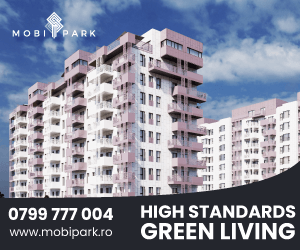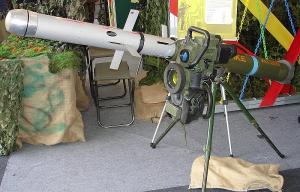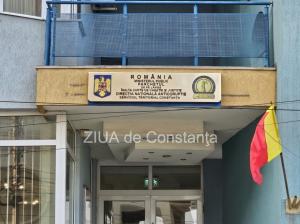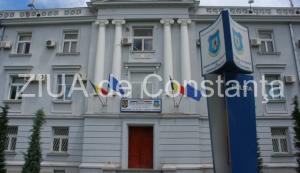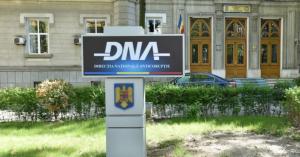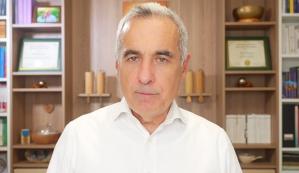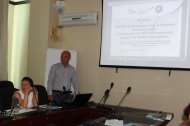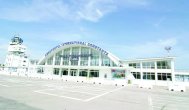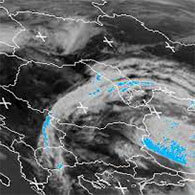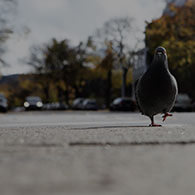Mihai Radu Popescu, the young teenager from Constanta who is going to study at Columbia University „Romania is not a country to «abandon»”
Mihai Radu Popescu, the young teenager from Constanta who is going to study at Columbia University: „Romania
15 Jul, 2013 00:21
ZIUA de Constanta
 2723
Marime text
2723
Marime text
 2723
Marime text
2723
Marime text

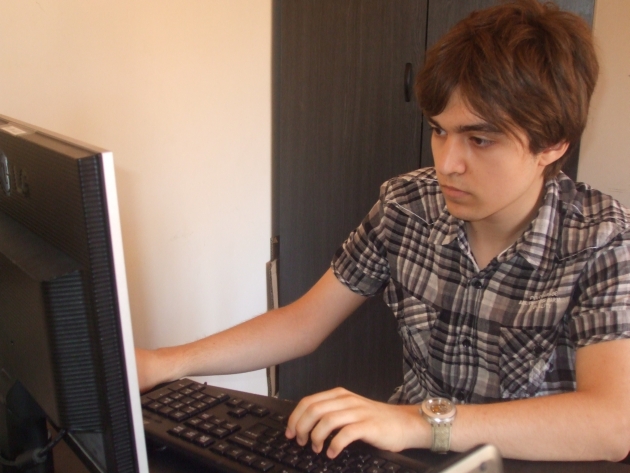
Mihai Radu Popescu graduated in 2013 from National College "Mircea cel Batran" with average 9.99 and obtained a total average of 9.55 at baccalaureate. He represented Romania and Constanta at the Olympics of mathematics, biology, chemistry and physics. In 2011, he was awarded with Likeyon distinction being appointed the Romanian student with the highest performance in that year.
The young boy applied to several universities, at pure physics, biology and computer science, but he will study at Columbia University, Engineering specialization.
Why did you choose a foreign educational institution?
Initially, I was not sure whether to go abroad or to stay in Romania. When I learnd more about foreign institutions it has become clear that there is a significant difference between Romanian and foreign universities: foreighn universities are research institutions too, meaning that that students can get involved, from the first year high level research with renowned professors. This is the main reason why I decided to continue studying abroad.
What do you think this experience will mean for you?
First of all, I think this will be a new experience - in terms of education, and especially in terms of extracurricular activities (universities in the United States place a high value on a student's life outside the classroom). Many of the clubs I can participate (sports, volunteering, recreational) are officially authorized by Columbia University and receive financial support from the university - another major difference from Romanian universities. The experience abroad will be a combination of classroom and extracurricular activities hard to find in other places.
Do you consider returning to Romania after graduation?
Of course. Romania is not a country "to abandon". I believe that Romania gave me a high level school education - whatever critics might say of the education system. We can’t deny the fact that Romania has produced values over the years - at international Olympiads, in high-level research institutions and in arts. Everything is a matter of channeling this potential - and this will really start when Romanian values will bring the country at least as it has brought their country to them.
You think that in the present the young can change something for the better in Romania? Do they have enough determination, enough power of persuasion and enough work strength to radically transform a field or a mindset?
One of the problems we face in Romania is that values are not motivated to stay in the country. Abroad there are entire environments (most of them associated with a university) where smart, original or creative people can stimulate each other – innovation propitious environments. Those environments are characterized by a lack of formality and bureaucracy - two things that are prevalent in the Romanian educational system. The moment we accept that the student can work side by side with the teacher and that his ideas are as valuable as those of the teacher, this is when we’ll go far. Excessive formalism and the tendency to "put in place the student" will disappear when the values that have suffered from this will return and occupy important positions - focusing, in these positions, for less formality.
What is important to you? What are your goals in the long term?
Humankind is approaching more and more to technology. For me it is important to accept this change as a result of human ingenuity and inventiveness, and not as a technological demon that should be removed from human life. Interconnectivity, direct access to information and powerful computing resources have pushed humanity into a new era. It is important to take this further - to accept that technology has become an intrinsic part of humanity and to try to unify the two aspects in a post human era. I hope (and intend) to contribute to this effort because I'm sure that will significantly improve the quality of life in all its aspects.
What are the role models of your generation? Who are the people you admire?
I want to start by saying what the past generation’s models were: famous people as successful innovators in their field - such as Thomas Edison. Present generation has changed that, appreciating people who were "wronged" by history - the people behind the scenes who were not so popular in their time. I think the symbol of the current generation, and a man I greatly admire, is Nikola Tesla. He made important contributions in all areas related to electricity. Although not as famous as Edison, Tesla had a significantly higher contribution, doing research in alternating current, "wireless" electricity, the radar etc. This is the symbol of the present generation: the idea that contribution is more important than reputation.
What do you do when you don’t participate in contests and Olympiads? What do you do in your spare time?
Besides reading and writing, I like to take pictures. The quality of the pictures I take is more important to me – I don’t "pose" too long. However, each of the images I am proud of illustrates a personal vision of the world. Another passion of mine has to do with computers and technical devices. I like to disassemble the computer and see how it works and use them in ways that were not intended to work. For example, a few weeks ago, I used a sound editor to retouch an image - so I had fun and I understood how these tools work in depth and the link between them. My free time is very flexible and is full of small examples that were planned "on the spot."
Urmareste-ne pe Grupul de Whatsapp
Comentarii
 Fondul Documentar Dobrogea de ieri și de azi
Fondul Documentar Dobrogea de ieri și de azi



